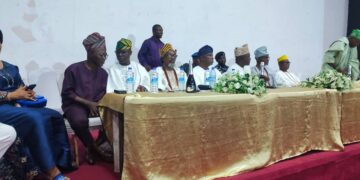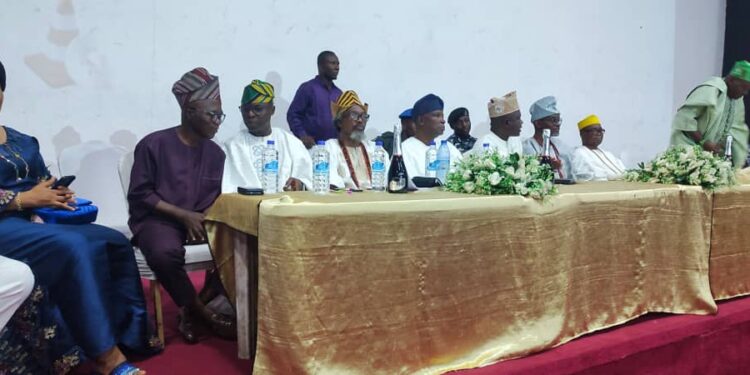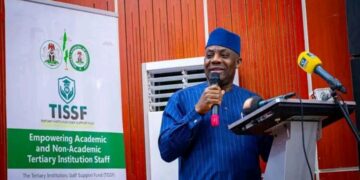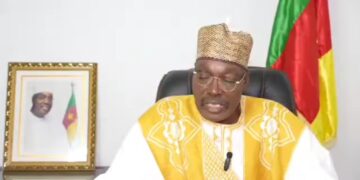![]()
Traditional rulers have in been urged to reignite the principles of Omoluabi—the age-old Yoruba concept of moral integrity, uprightness, and selfless leadership—as a solution to the increasing social and leadership decay in Nigeria.
This call was made by Chief Dr. Abiodun Oladimeji Lasile, the Orunto of Owu Kingdom in Abeokuta on Tuesday, during his presentation titled “The Enduring Legacy of Omoluabi: A Celebration of Traditional Excellence in Egbaland” at the Coronet Obas and Baales Workshop, held at the June 12 Cultural Centre, Kuto, Abeokuta.
The workshop, organised by Senator Shuaib Afolabi Salisu, drew together traditional leaders from across the Ogun Central Senatorial District, which covers six local government areas in Egbaland.
Lasile emphasized that Nigeria’s traditional values such as respect for elders, communal living, hospitality, courage, and chastity remain essential for national revival. He particularly stressed the concept of Omoluabi as the cornerstone of Yoruba identity.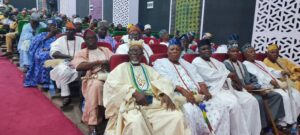
“Omoluabi is more than just a cultural ideal; it is a moral compass. It teaches integrity, respect, humility, and responsibility. If our leaders and citizens embrace these values, our communities will flourish,” Lasile said.
He lamented the erosion of these values in contemporary society and charged traditional rulers to reposition themselves as agents of moral leadership, conflict resolution, and community development.
“We cannot ignore the power of our palaces, people feel closer to the palace than to the government secretariat. That trust should be used to transform lives and shape policy from the grassroots,” Lasile noted.
He recounted the historical example of Oba Ladapo Ademola’s temporary abdication in the 1940s following massive protests by women against taxation—led by Funmilayo Ransome-Kuti—as a lesson in humility, consultation, and people-centered leadership.
The paper also challenged traditional rulers to take more proactive roles in securing their communities.
“Our Obas must not just remain ceremonial. With the rising tide of insecurity, their local intelligence, influence, and access to grassroots information are invaluable tools for tackling crime,” he stated.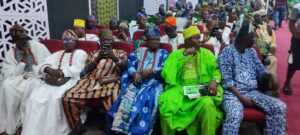
Among Lasile’s recommendations were the establishment of Alternative Dispute Resolution (ADR) centres in palaces, capacity-building workshops for traditional leaders, and the transformation of royal courts into community information hubs.
He also emphasized the need for traditional institutions to embrace media and technology.
“Gone are the days of the town crier. Obas must utilize modern media platforms to communicate, enlighten, and mobilize their people,” he said.
Lasile paid glowing tribute to Senator Shuaib Salisu, the sponsor of the workshop, describing him as “a leader who recognizes the relevance of our royal fathers in rebuilding our society.”
In his concluding remarks, Lasile called for unity among the traditional rulers of Egbaland—comprising Abeokuta North, Abeokuta South, Odeda, Obafemi-Owode, Ewekoro, and Ifo—and a revival of the Omoluabi spirit to guide governance and cultural continuity.
“Development attracts people. Hospitality retains investors. Peaceful cohabitation sustains prosperity. Let us reawaken the Omoluabi in us and secure a better tomorrow for generations to come,” he urged.
